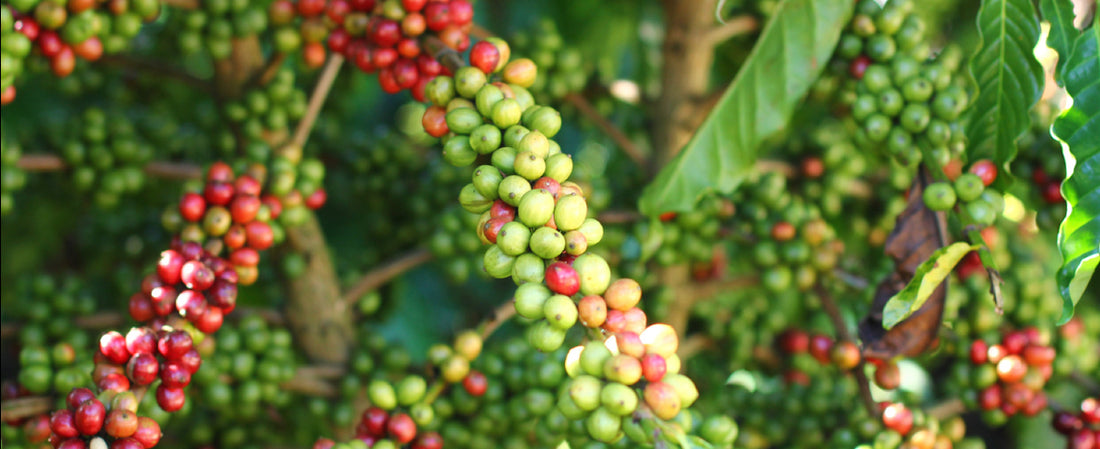
Motivos para el cambio o un sorbo sostenible
Share
Changing the World
Coffee is the second most consumed beverage in the world after water, with over two billion cups consumed daily.
However, the coffee industry is in serious trouble, with worldwide production declining due to climate change and the inability of farmers to make a living from growing coffee.
One Sustainable Sip at a Time
By supporting regenerative coffee farming practices, we can mitigate climate change and create equity and prosperity for coffee farmers while improving the quality and health impacts for consumers of coffee.
Together, we can create a more equitable and sustainable coffee industry that benefits everyone involved.
The Financial Challenge
- Over 60% of small and medium-sized coffee farmers live month to month, unable to make ends meet.
- The coffee industry is dominated by a few multinational corporations, with coffee buyers controlling the market and dictating prices.
- Most farmers do not have access to finance at Bank of Development rates which drives them to borrow at very high interest rates and leaves them at risk of losing their land or needing to sell the land. Too often their children are forced or choose to leave the industry father than stay in poverty.
- Most farmers do not have access to sell their coffee directly and have to sell via a coop or a third party which eats further into their earnings.
- There is no reliable system in place to trace how much money goes to farmers from coffee sales. With too many middlemen/women between the bean and the cup. there is misinformation and a disconnect for the consumer making the purchasing decision, See below for the economy of coffee in a nutshell.
- Even the fair trade system is flawed, with fair trade coffee often priced below its cost of production; Most farmers do not know how to cost their production, leading to many selling below cost.

The Sustainability Challenge
Coffee is grown using harmful chemicals that damage the land and have a negative impact on farmers' health. But, these chemicals increase productivity. so they are used on 95% of coffee sold worldwide. This affects the health of the coffee drinker as well.
Agrochemical companies rule the industry, erode soils and promote technical assistance that creates a dependence on their products which comes at a high cost financially and health-wise.
The Opportunity
Use regenerative coffee farming practices such as intercropping. agroforestry, and cover crops. to mitigate climate change and create equity and prosperity for coffee farmers
Create a direct to consumer market or make it possible for consumers to buy from companies that buy directly from farmers to eliminate unnecessary middlemen that drive up the cost of goods.
Next Steps
Awareness and Education
Farmer educative: Create an online platform and network for small farmers to share regenerative and commercial practices.
Consumer education: Expose the inequíties of the coffee market, negative impact on climate, inefficiencies of fair trade and present solutions such as those referenced in the Netflix documentary, Kiss the Ground.
Policy and Regulation
Advance policies that promote regenerative farming practices among governments and international trade organizations
Create advocacy tools to pressure governments to advance policies
Research and Development
Develop and distribute inexpensive and simple soil test to determine levels of soil regeneration.
Invest in innovative solutions to responsible farming that are cost-effective and easy for farmers to implement
